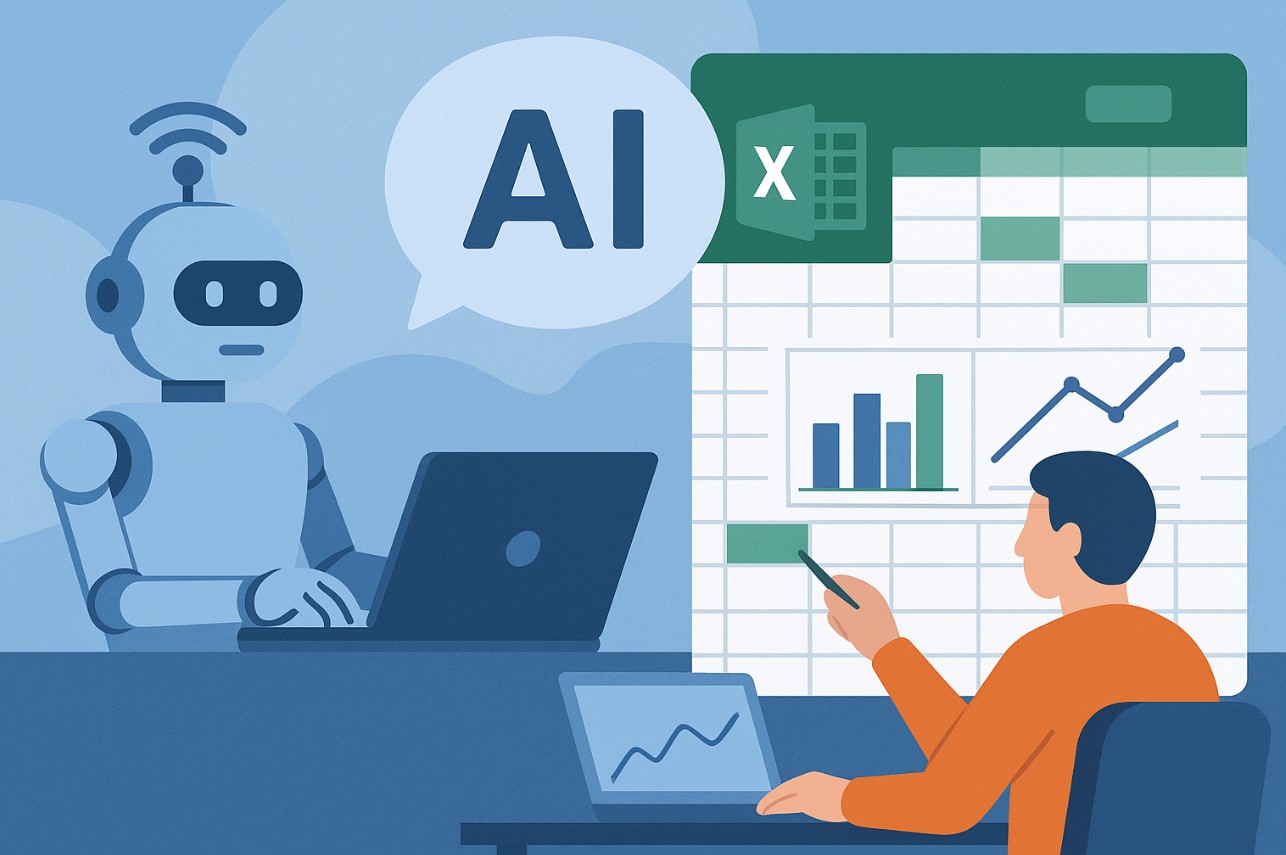
How Businesses Still Benefit from Excel in an AI-Driven World?
Artificial Intelligence (AI) has transformed how companies operate, from automating workflows to generating insights in seconds. Yet, despite the surge in AI-powered analytics tools and automation platforms, one software remains deeply ingrained in the business world: Microsoft Excel.
Far from being obsolete, Excel continues to play a crucial role in helping businesses manage data, create forecasts, and make informed decisions. In fact, many professionals now use Excel alongside AI tools rather than replacing it entirely.
Top Benefits of Excel for Business: Why It Remains an Essential Tool?
1. Excel’s Familiarity and Flexibility
The first reason Excel remains irreplaceable is its universality. Almost every office professional, from accountants to marketers, knows how to use it. Its flexibility allows users to handle everything from quick budget calculations to complex financial modeling without extensive retraining or expensive software subscriptions.
When new AI tools are introduced, they often integrate with Excel instead of replacing it, because businesses trust its proven reliability.
2. The Power of Data Visualization and Analysis

AI tools may offer predictive analytics and dashboards, but Excel’s native data visualization features remain powerful and accessible. With pivot tables, Power Query, and conditional formatting, users can quickly turn raw data into meaningful charts and reports.
Even advanced users can incorporate AI-driven analytics by combining Excel with Microsoft’s Power BI or third-party integrations, creating a hybrid workflow that’s both intelligent and flexible.
3. AI Integration Within Excel Itself
Microsoft has embraced the AI revolution by embedding AI capabilities directly into Excel. Features like “Analyze Data,” “Ideas,” and natural-language queries help users gain insights faster. These smart tools use machine learning to identify patterns, recommend charts, and even write formulas for you.
Rather than competing with AI, Excel is evolving to work with it.
4. Cost-Effective for Businesses of All Sizes
While AI analytics platforms often come with steep licensing costs or enterprise-level contracts, Excel remains one of the most affordable and scalable options. For small to medium-sized businesses, it provides everything they need for managing operations, tracking KPIs, and forecasting growth, all without additional infrastructure.
5. Upskilling Teams for the Modern Era

As AI becomes more embedded in workflows, businesses are realizing that advanced Excel knowledge is still a critical skill. Teams who know how to combine formulas, automation tools, and data visualization are far more effective in adapting to AI-driven processes.
Investing in Excel training London is one of the most practical steps companies can take. It ensures employees stay efficient, confident, and ready to harness both Excel and AI for smarter decision-making.
6. The Future: Collaboration, Not Competition
The narrative that AI will “replace” Excel misunderstands the true potential of both. Excel is evolving into a platform that complements AI systems, allowing human creativity and judgment to combine with machine-generated insights. Businesses that understand this synergy will remain ahead, efficient, adaptable, and data-driven.
Final Thoughts
In an AI-driven world, Excel isn’t a relic, it’s a foundation. Its ability to integrate with AI tools, maintain flexibility, and empower teams means it will continue to be a cornerstone of business operations for years to come.
Whether you’re optimizing financial models, visualizing trends, or learning to automate reports, mastering Excel is still one of the smartest investments any business can make.
Author Profile
- Blogger by Passion | Contributor to many Business Blogs in the United Kingdom | Fascinated to Write Blogs in Business & Startup Niches |
Latest entries
 BusinessNovember 6, 2025How Businesses Still Benefit from Excel in an AI-Driven World?
BusinessNovember 6, 2025How Businesses Still Benefit from Excel in an AI-Driven World? TechnologyOctober 31, 2025Emerging UK Trends in Online User Behaviour Shaping Digital Engagement
TechnologyOctober 31, 2025Emerging UK Trends in Online User Behaviour Shaping Digital Engagement TechnologyOctober 31, 2025How UK Online Consumers Are Exploring New Digital Experiences?
TechnologyOctober 31, 2025How UK Online Consumers Are Exploring New Digital Experiences? BusinessOctober 22, 2025What Obligations Do Employers Have to Lone Workers?
BusinessOctober 22, 2025What Obligations Do Employers Have to Lone Workers?

